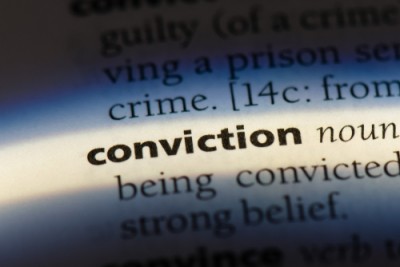US lawyer in Hong Kong is convicted for trying to stop beating by man who turned out to be cop

Image from Shutterstock.
An American corporate lawyer in Hong Kong is planning to appeal after his assault conviction last week for intervening when a man attacked a commuter.
The lawyer, 37-year-old Samuel Bickett, had tried to stop a man with a baton who turned out to be an off-duty police officer. Bickett remains jailed pending his sentencing next month, report the Washington Post and the South China Morning Post.
Bickett said in a statement the verdict was “outrageous” and unsupported by the law and the evidence.
“I will appeal this verdict, and I will not rest until justice is done,” he said.
Bickett was director of Asia-Pacific anti-bribery and anti-corruption compliance at Bank of America Merrill Lynch, according to a LinkedIn profile cited in previous coverage by Law.com. He no longer has the job, according to the Washington Post. He has previously worked in Hong Kong at Ropes & Gray and Freshfields.
The incident occurred in late 2019 as Bickett was on his way to dinner. The officer had used his baton to try to stop a turnstile jumper, according to evidence introduced at Bickett’s trial. At first, the officer repeatedly denied being an officer when a commuter asked whether he was a “popo,” a slang term used for police. Then the officer said he was with the police.
A partial video posted online showed the officer lunging at Bickett and Bickett trying to grab the officer’s baton. Bickett hit the officer when he fell to the ground, according to Law.com. Later, both men stood and held on to the baton until another officer arrived.
Magistrate Arthur Lam Hei-wei said it is understandable for the officer to deny being a “popo” because the term is considered disrespectful. Lam also said Bickett tried to take the baton from the officer, even when no one was in immediate danger, and he wasn’t acting in self-defense.
According to the Washington Post, the verdict comes amid fears that China’s tighter control over Hong Kong institutions is compromising courts.
Protests erupted in June 2019 after an extradition bill raised fears that the separation between Hong Kong courts and China’s judicial system would be erased. In June 2020, a new law banned “vaguely defined acts such as foreign collusion, subversion and secession,” according to the Washington Post.
Some had hoped that the decline of the rule of law would be confined to cases brought under the national security law. But the atmosphere in Hong Kong has “increasingly infected” other cases, Jerome Cohen, a professor at the New York University School of Law, told the Washington Post. Cohen is faculty director of the university’s U.S.-Asia Law Institute.



